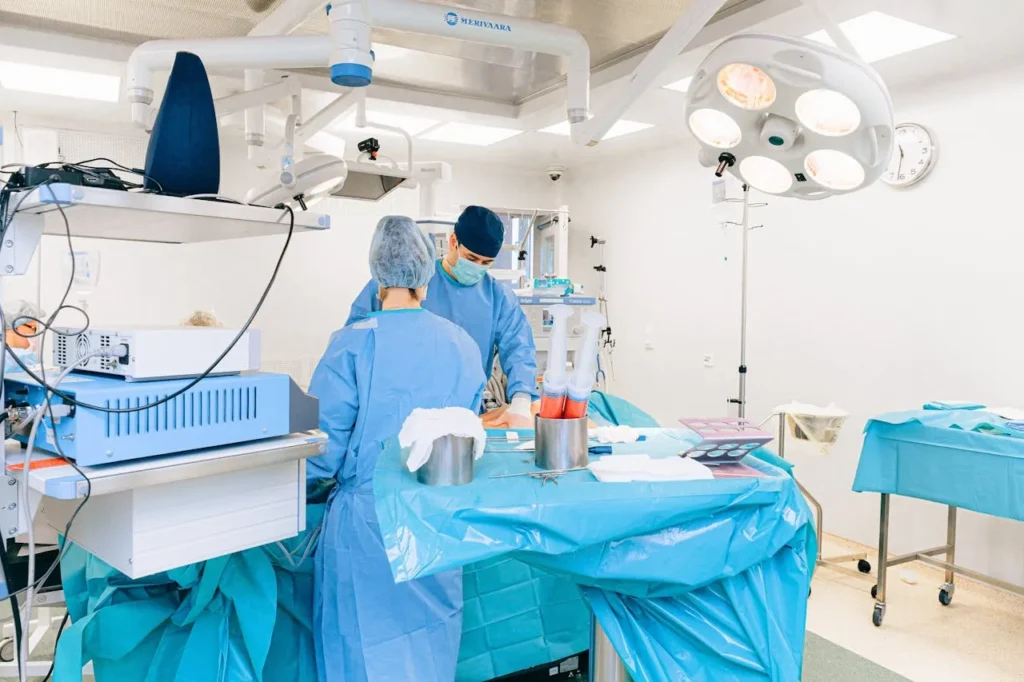
Kidney Transplant Eledon Pharmaceuticals Advances Xenotransplantation with Tegoprubart
Kidney Transplant Eledon Pharmaceuticals has announced that its investigational anti-CD40L antibody, tegoprubart, was a crucial component of the immunosuppression regimen used in a historic kidney xenotransplantation procedure. On January 25, 2025, a team of surgeons at Massachusetts General Hospital (MGH), in collaboration with Eledon’s partner eGenesis, successfully transplanted a kidney from a genetically modified pig into a human patient. This marks another major milestone in the advancement of xenotransplantation, a promising solution to the global organ shortage crisis.
Kidney Transplant The U.S. Food and Drug Administration (FDA) approved MGH’s request to proceed with this pioneering transplant in December 2024. With this approval, MGH is planning to conduct two additional xenotransplantation procedures in 2025. The patient who underwent the latest transplant has since been discharged from the hospital and is off dialysis for the first time in over two years, highlighting the procedure’s success and potential future implications.

A Milestone in Xenotransplantation: Overcoming Organ Shortages
Dr. David-Alexandre C. Gros, CEO of Eledon Pharmaceuticals, emphasized the significance of the breakthrough, stating:
“This second kidney xenotransplant conducted at MGH represents another important milestone in the effort to consider new strategies in transplantation and immunosuppression to address the global organ shortage crisis. We are grateful to the patient, the team at MGH, and our partner eGenesis for supporting tegoprubart’s central role in these landmark procedures.”
The global demand for Kidney Transplant organ transplants continues to outpace supply, leaving thousands of patients on waiting lists each year. The use of genetically modified pig organs offers a viable alternative, but immune system rejection remains a major challenge. Tegoprubart’s ability to block the CD40 Ligand (CD40L) is emerging as a critical factor in overcoming this challenge, providing hope for future xenotransplant patients.
Tegoprubart’s Role in Immunosuppression
Kidney Transplant The success of xenotransplantation hinges on effective immunosuppression to prevent the recipient’s body from rejecting the transplanted organ. Tegoprubart is designed to block CD40L, a key component of the immune system’s communication network. This blocking mechanism helps suppress immune responses that could lead to organ rejection, improving long-term transplant viability.
According to Dr. Leonardo Riella, Medical Director for Kidney Transplantation at MGH:
“I would like to thank Eledon for their work supporting this historic xenotransplant. Immunosuppression presents one of the greatest challenges for transplantation in both human and non-human organs. The need for advancements in immunosuppressive medications is critical for advancing our field and improving the quality of life for transplant patients everywhere.”
Tegoprubart is currently being administered to the second xenotransplant patient at MGH as part of a carefully designed regimen to prevent organ rejection. The investigational therapy has demonstrated the ability to inhibit multiple costimulatory receptors, including CD40 and CD11, which play critical roles in immune system activation. Early research suggests that tegoprubart is generally safe and well-tolerated, making it a promising candidate for broader clinical application.
Previous Xenotransplant Success and Broader Clinical Trials
Tegoprubart has been instrumental in previous groundbreaking transplants, including the first-ever kidney xenotransplant at MGH in March 2024. Additionally, the antibody was a cornerstone component of the chronic immunosuppression regimen used in the second-ever transplant of a genetically modified pig heart into a human, performed at the University of Maryland Medical Center in September 2023.
Beyond xenotransplantation, tegoprubart is being evaluated in three global clinical studies for the prevention of organ rejection in kidney transplant recipients. In a separate investigator-sponsored trial, the drug is being tested for its ability to prevent islet transplant rejection in patients with Type 1 diabetes (T1D).
Promising Results in Islet Transplant Trials
Recently, Eledon announced promising initial data from an investigator-initiated islet transplant trial at the University of Chicago Medicine Transplant Institute. Notably, this research demonstrated potential cases of insulin independence achieved using an anti-CD40L monoclonal antibody therapy—without relying on tacrolimus, the current standard for preventing transplant rejection. These findings suggest that tegoprubart could play a transformative role in future transplant medicine, offering safer, more effective immunosuppression alternatives.
Future Clinical Milestones and Upcoming Data Releases
Eledon Pharmaceuticals is preparing to report multiple critical clinical milestones over the next year. Key updates include:
- Summer 2025: Updated interim clinical trial data from its ongoing Phase 1b study and long-term safety and efficacy extension trials in kidney transplant patients.
- Q4 2025: Topline results from the Phase 2 BESTOW kidney transplant trial.
- Late 2025: Long-term follow-up results from the investigator-led islet transplant trial at the University of Chicago Medicine Transplant Institute.
The Future of Xenotransplantation and Immunosuppression
The recent advances in xenotransplantation, combined with Eledon Pharmaceuticals’ pioneering work in immunosuppression therapy, are reshaping the future of transplant medicine. As researchers continue to refine techniques and improve outcomes, the dream of using genetically modified animal organs to address the human organ shortage crisis is becoming increasingly tangible.
With FDA approvals, cutting-edge biotechnology, and promising clinical results, tegoprubart is positioning itself as a game-changing therapy in the field of transplantation. If ongoing clinical trials continue to show positive outcomes, tegoprubart could become a new standard in immunosuppression therapy, improving transplant success rates and extending the lifespan of transplanted organs.





